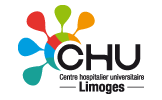Knowledge and practice concerning swallowing disorders in hemiplegic patients among nurses of Bobo–Dioulasso urban primary health care centers in Burkina Faso
Résumé
Introduction: The quality of management of swallowing disorders (SD) from admission onwards influences the patients' nutritional status and their prognosis. Neurological diseases are the main causes of SD, affecting one in three patients with hemiplegia (Hp). In Burkina Faso (BF), primary health care center (PHCC) nurses are the first to manage these patients, but there are no data related to their management of SD. The study aimed to assess knowledge and practices regarding SD in Hp among PHCC nurses in Bobo-Dioulasso, a main center for care of Hp in BF.
Methods: This cross-sectional study was performed August 1-September 15 2014. Subjects underwent a standardized survey to determine their knowledge and practices concerning SD in Hp.
Results: Of 125 nurses surveyed (83.3% of the targeted workers), 82.4% had experience of caring for Hp. The role of the central nervous system in cases of Hp and SD was recognized by 56.8% of nurses; 42.3% knew that SD can cause aspiration, and 36.0% were aware of rescue techniques to use when aspiration occurs; 39.2% correctly assessed the impact on nutritional status of SD. Knowledge in this area was better among respondents who recently completed training school. 65.6% and 1.6% respectively knew about the impact of posture and the texture of food on the ability to swallow. Among the 103 nurses with experience of treating Hp, 68.0% considered clinical interview the best way to detect SD, and 30.1% did not give the patient advice in this area. In multivariate analysis, detection of SD was associated with good knowledge of the value of voice disorders (OR = 3.5, 95% CI = 1.4-8.1; p = 0.005).
Conclusion: Few nurses had been warned of the connection between Hp and SD, which are classic issues and potential complications. Practices varied, but most were not in accord with what are recognized as good strategies for SD screening and management. In order to improve care of Hp, neurological and nutritional training should be accompanied by specific training in SD, emphasizing screening and simple management.
Domaines
Santé publique et épidémiologie| Origine | Publication financée par une institution |
|---|




